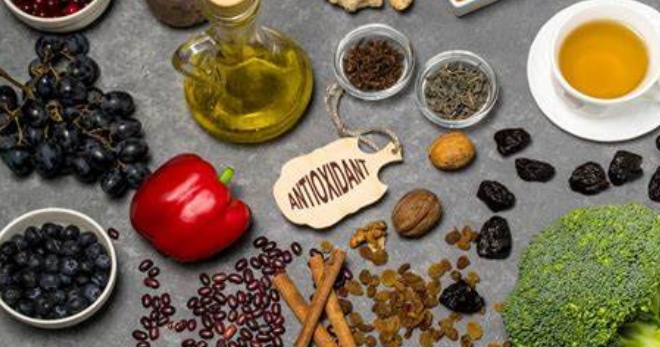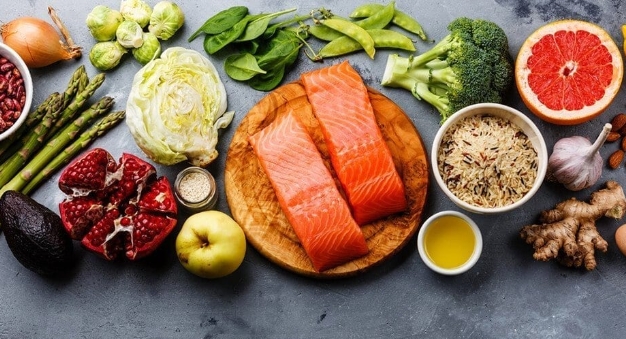Antioxidants are compounds found in various foods that help protect our bodies from oxidative stress, a condition that can lead to cell damage and the development of chronic diseases. Oxidative stress occurs when there is an imbalance between free radicals—unstable molecules that can damage cells—and the body’s ability to neutralize them with antioxidants. While oxidative stress is a natural process, excessive free radicals can damage healthy cells, tissues, and DNA, which may contribute to aging and various diseases like heart disease, cancer, and neurodegenerative disorders. Fortunately, a diet rich in antioxidants can help combat oxidative stress and support overall health.
What Are Antioxidants?
Antioxidants are molecules that help neutralize free radicals, preventing them from causing cellular damage. Free radicals are generated naturally during metabolic processes such as breathing, digestion, and even exercise. However, external factors like pollution, UV radiation, smoking, and an unhealthy diet can also increase the production of free radicals in the body.
Common antioxidants include vitamins C and E, beta-carotene, and selenium, as well as other compounds found in plant-based foods, such as flavonoids and polyphenols. These antioxidants are found in a variety of foods, especially fruits, vegetables, nuts, seeds, and whole grains. By incorporating a wide range of antioxidant-rich foods into your diet, you can enhance your body’s ability to protect itself from oxidative damage.
The Health Benefits of Antioxidants
- Supporting Heart Health One of the most significant benefits of antioxidants is their ability to protect the heart and blood vessels from oxidative damage. Chronic oxidative stress has been linked to the development of atherosclerosis (hardening of the arteries), which can increase the risk of heart attacks, stroke, and high blood pressure. Antioxidants, such as vitamin E, vitamin C, and flavonoids, have been shown to reduce inflammation and prevent the oxidation of LDL cholesterol (bad cholesterol), which contributes to plaque buildup in the arteries. By neutralizing free radicals, antioxidants can help maintain the health of blood vessels and reduce the risk of cardiovascular diseases.
- Boosting Immune Function Antioxidants also play an important role in supporting the immune system. Free radicals can weaken the immune system by damaging immune cells, making the body more susceptible to infections and illnesses. Antioxidants like vitamin C and zinc help enhance the immune response by protecting immune cells from oxidative damage. Vitamin C, in particular, is known for its ability to stimulate the production of white blood cells, which are essential for fighting off pathogens. A diet rich in antioxidants can help ensure that your immune system functions optimally and protects you from illness.
- Preventing Chronic Diseases Oxidative stress is a major contributor to the development of chronic diseases such as diabetes, cancer, and neurodegenerative diseases (e.g., Alzheimer’s and Parkinson’s disease). By neutralizing free radicals, antioxidants help reduce the risk of cellular damage that can lead to these diseases. For example, studies suggest that antioxidants like selenium and vitamin E may help protect against certain types of cancer by preventing DNA damage and inhibiting the growth of cancerous cells. In the case of neurodegenerative diseases, antioxidants help protect the brain from damage caused by free radicals, which may slow the progression of diseases like Alzheimer’s and improve cognitive function.
- Supporting Skin Health and Aging Antioxidants are also essential for maintaining healthy skin and preventing signs of aging. The skin is constantly exposed to environmental stressors such as UV radiation, pollution, and chemicals, all of which can generate free radicals and accelerate the aging process. Antioxidants, especially vitamin C and beta-carotene, help protect the skin by neutralizing free radicals and promoting collagen production. Collagen is a protein that helps maintain the skin’s elasticity and firmness, which can reduce the appearance of wrinkles and fine lines. Consuming antioxidant-rich foods can help protect the skin from damage and keep it looking youthful and radiant.
- Improving Eye Health The eyes are particularly vulnerable to oxidative stress because they are constantly exposed to light. Free radicals can damage the cells in the eyes and contribute to the development of eye conditions such as cataracts and macular degeneration, which are common with aging. Antioxidants like vitamin C, vitamin E, and lutein (found in dark leafy greens) are crucial for maintaining eye health. These antioxidants help protect the eyes from oxidative damage and may reduce the risk of age-related eye diseases.
Foods High in Antioxidants
To benefit from the powerful protective effects of antioxidants, it’s important to include a variety of antioxidant-rich foods in your diet. Here are some of the top sources of antioxidants:
- Berries: Blueberries, strawberries, raspberries, and blackberries are rich in antioxidants like flavonoids and vitamin C.
- Dark Chocolate: Dark chocolate (with at least 70% cocoa) is packed with flavonoids, which have potent antioxidant properties.
- Leafy Greens: Spinach, kale, and Swiss chard are excellent sources of vitamin C, beta-carotene, and lutein.
- Nuts and Seeds: Almonds, walnuts, and sunflower seeds are rich in vitamin E and other antioxidant compounds.
- Orange and Yellow Vegetables: Carrots, sweet potatoes, and butternut squash are high in beta-carotene, which the body converts into vitamin A.
- Green Tea: Green tea is loaded with polyphenols and catechins, which are powerful antioxidants that help protect the body from free radical damage.
- Beans and Legumes: Beans, lentils, and chickpeas contain antioxidants like flavonoids and polyphenols that help reduce inflammation and protect against oxidative stress.
Tips for Maximizing Antioxidant Intake
- Eat a Rainbow of Foods: Different antioxidants are found in different colored fruits and vegetables. For the greatest variety of antioxidants, aim to “eat the rainbow,” incorporating colorful fruits and vegetables such as berries, spinach, carrots, tomatoes, and bell peppers.
- Incorporate Healthy Fats: Healthy fats from sources like olive oil, avocados, and fatty fish (e.g., salmon) help your body absorb fat-soluble antioxidants like vitamin E and beta-carotene.
- Drink Green Tea: Regularly drinking green tea can provide a steady source of antioxidants and help improve overall health.
- Limit Processed Foods: Highly processed foods, especially those high in sugar and trans fats, can increase oxidative stress in the body. Focus on whole, nutrient-dense foods to support antioxidant levels.
Conclusion
Antioxidants play a crucial role in protecting the body from oxidative stress and preventing the development of chronic diseases. They help support heart health, boost the immune system, prevent aging, and promote overall well-being. By incorporating antioxidant-rich foods like fruits, vegetables, nuts, seeds, and green tea into your daily diet, you can help your body combat free radicals and support optimal health. Prioritizing antioxidants in your nutrition plan is a simple but powerful way to protect your body and mind from the damaging effects of oxidative stress.





